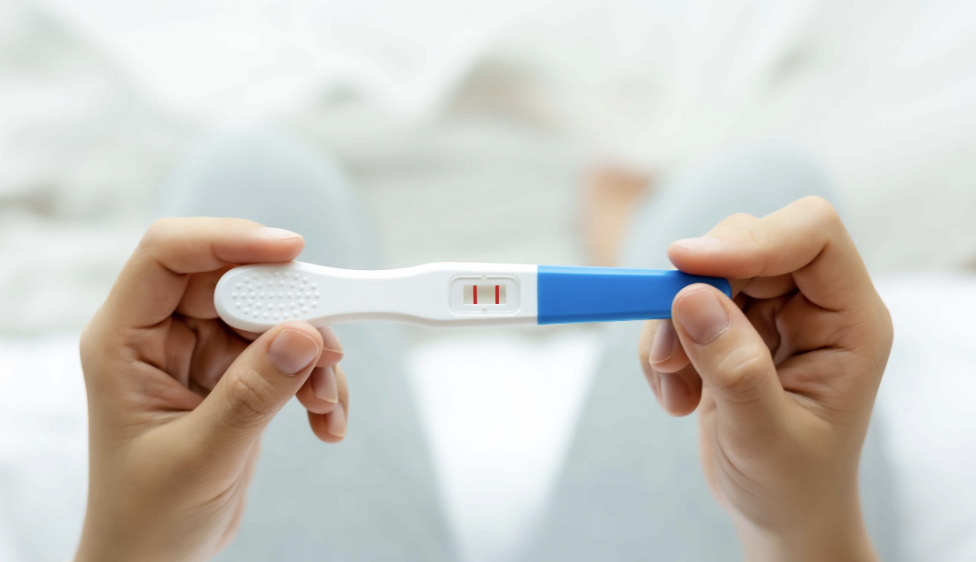Top Lifestyle Changes to Improve Fertility Naturally

Fertility can be influenced by many factors, and making certain lifestyle adjustments can positively impact reproductive health. Whether you’re planning for a family now or in the future, adopting fertility-friendly habits can enhance your chances of conception. This guide covers the key lifestyle changes that support fertility, including diet, exercise, stress management, and the importance of avoiding harmful habits.
1. The Role of Diet in Fertility
A balanced, nutrient-rich diet lays the foundation for reproductive health. Research has shown that specific dietary choices can influence both male and female fertility. Here’s what to include for a fertility-friendly diet:
- Fertility-Boosting Foods: Studies in The American Journal of Clinical Nutrition have linked a Mediterranean diet rich in fruits, vegetables, whole grains, and healthy fats to improved fertility outcomes. Foods such as leafy greens, berries, nuts, and fatty fish (like salmon and sardines) provide antioxidants and essential fatty acids that support egg and sperm quality.
- Protein Sources: Plant-based proteins from beans, lentils, and nuts, along with lean animal proteins, have been associated with better fertility outcomes compared to red and processed meats. Swapping some animal proteins for plant-based sources can support hormone health and reduce inflammation.
- Complex Carbohydrates: Whole grains such as quinoa, oats, and brown rice can help regulate blood sugar levels, which is crucial for hormonal balance. High-glycaemic foods, like refined grains and sweets, may contribute to insulin resistance, which can impact ovulation in women.
2. Importance of Regular Exercise
Exercise can enhance fertility, but balance is key. Too little or too much physical activity can both have negative effects on reproductive health. Here’s how to make exercise work for you:
- Moderate Activity: Moderate aerobic exercise, such as walking, cycling, or swimming for 30 minutes a few times per week, supports blood flow and reduces stress. Research published in Human Reproduction highlights that moderate exercise is associated with higher fertility rates compared to a sedentary lifestyle.
- Avoid Over-Exercising: High-intensity exercise or prolonged, strenuous routines can negatively impact fertility by disrupting hormone balance, especially in women. Maintaining a balanced approach helps avoid the potential risk of irregular menstrual cycles.
3. Managing Stress for Fertility Health
Chronic stress can impact hormonal health and fertility, as high cortisol levels can disrupt the release of hormones necessary for ovulation and sperm production. Incorporating stress-reducing practices can have a beneficial impact on fertility:
- Mindfulness and Meditation: Techniques like mindfulness, yoga, and meditation can reduce stress and promote relaxation. A study in Fertility and Sterility found that mindfulness-based stress reduction (MBSR) helped reduce stress in women undergoing fertility treatments, which may indirectly improve fertility outcomes.
- Therapeutic Support: Cognitive-behavioural therapy (CBT) and counselling can offer effective coping strategies for managing stress. Seeking support from a therapist or fertility counsellor can help alleviate emotional stress and improve mental well-being during the fertility journey.
4. Nutritional Supplements and Vitamins to Support Fertility
Certain vitamins and minerals play a vital role in fertility. Incorporating these supplements, under the guidance of a healthcare provider, can support reproductive health:
- Folic Acid: Folic acid is essential for reproductive health and helps reduce the risk of neural tube defects in early pregnancy. Most experts recommend at least 400 micrograms of folic acid per day for women trying to conceive.
- Vitamin D: Low levels of vitamin D have been linked to infertility in both men and women. Spending time outdoors and taking a vitamin D supplement, especially during winter months, can help maintain optimal levels.
- Zinc: Zinc is crucial for sperm production and ovulation. Foods rich in zinc, like pumpkin seeds, nuts, and whole grains, or a zinc supplement can help maintain healthy reproductive function.
- Coenzyme Q10 (CoQ10): Known for its antioxidant properties, CoQ10 may support egg and sperm quality, particularly in older individuals. Studies suggest that CoQ10 may improve ovarian reserve and overall egg health in women over 35.
5. Impact of Smoking, Alcohol, and Sleep on Fertility
Certain lifestyle habits can have a detrimental effect on fertility. Here’s what to avoid or moderate to boost reproductive health:
- Smoking: Smoking has been shown to negatively affect both egg and sperm quality, increasing the risk of infertility and miscarriage. Chemicals in cigarettes can damage reproductive organs and cause early ageing of eggs. Quitting smoking is one of the most impactful changes you can make for your fertility and overall health.
- Alcohol Consumption: Excessive alcohol intake can disrupt hormone levels and reduce fertility in both men and women. Moderate alcohol consumption is generally safe, but reducing intake, especially when actively trying to conceive, is recommended. The NHS suggests no more than 1-2 units of alcohol per week for those trying to conceive.
- Adequate Sleep: Quality sleep is essential for regulating hormones that support reproductive health. Aiming for 7-8 hours per night can improve hormonal balance and reduce stress, both of which are important for fertility. A study in Sleep Medicine Reviews linked poor sleep to decreased fertility and an increased risk of irregular menstrual cycles in women.
Conclusion: Small Lifestyle Changes for Lasting Fertility Benefits
Improving fertility naturally doesn’t require drastic measures but rather a balanced approach that supports overall health. Adopting a nutrient-rich diet, regular moderate exercise, stress management, and healthy habits can significantly impact reproductive health. Each small lifestyle change contributes to a better chance of conceiving and helps lay the foundation for a healthy pregnancy.
If you’re trying to conceive, consider speaking with a fertility specialist or nutritionist to tailor these changes to your unique needs and ensure that you’re on the right path to boosting your fertility naturally.
FAQ Section:
- What foods can improve fertility?
Fertility-boosting foods include leafy greens, nuts, berries, and fatty fish, which are rich in antioxidants and healthy fats. - How much exercise is recommended to improve fertility?
Moderate exercise like walking or cycling for 30 minutes a few times a week is beneficial, but over-exercising can negatively impact fertility. - Does stress affect fertility?
High-stress levels can disrupt hormone balance, impacting ovulation and sperm quality. Practices like meditation and therapy can help manage stress.
Further Reading
- Discover more about diet and fertility on the British Dietetic Association website.
- Learn about managing stress for fertility from Fertility Network UK.
- Explore the benefits of fertility supplements in our Complete Guide to Fertility Vitamins and Minerals.


 Previous
Previous

